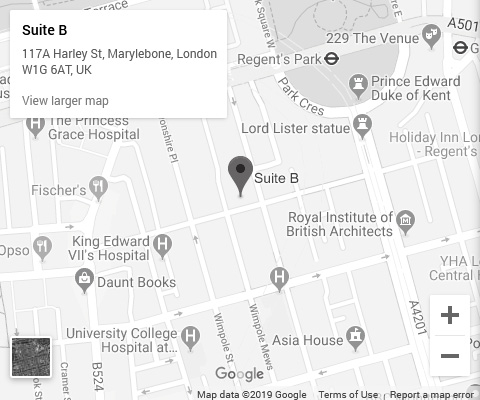
Menopause is a natural phase in every woman’s life, yet it often comes with confusion, discomfort, and unanswered questions. For women in London, navigating menopause can feel like walking through a maze of symptoms, treatments, and lifestyle changes. Whether you’re just starting to notice hot flushes or grappling with emotional ups and downs, understanding what’s happening - and what help is available - can make all the difference. In this guide, we’ll explore the ins and outs of menopause, from its early signs to treatment options and practical tips for managing symptoms. Let’s dive in and demystify this important stage of life.
What Is Menopause, and When Does It Start in the UK?
Menopause marks the end of a woman’s reproductive years, officially defined as 12 consecutive months without a period. Before this, many women experience perimenopause - a transitional phase that can last several years. During perimenopause, hormone levels fluctuate, leading to irregular periods and other symptoms.
In the UK, the average age for menopause is 51, but it can occur earlier or later. Early menopause (before 45) and premature menopause (before 40) can happen due to genetics, autoimmune conditions, or medical treatments like chemotherapy. These hormonal shifts involve declining levels of oestrogen and progesterone, which affect everything from your mood to your bone health.
If you're wondering, “What are the first signs of menopause in the UK?” Keep reading - the next section will cover these early indicators in detail.
What Are the First Signs and Symptoms of Menopause?
The first signs of menopause can be subtle or dramatic, depending on your body. Common physical symptoms include hot flushes, night sweats, and irregular periods. You might also notice changes in your sleep patterns or skin texture.
Emotionally, menopause can bring mood swings, anxiety, and even memory lapses. Some women describe feeling like they’ve lost their usual sense of calm or focus. Vaginal dryness and reduced libido are also common, impacting sexual health and relationships.
Understanding the differences between perimenopause and menopause UK symptoms is crucial. Perimenopause is the lead-up, where symptoms gradually intensify, while menopause itself is the point when periods stop altogether.
If your symptoms are severe or affecting daily life, don’t hesitate to see your GP. They can provide clarity and suggest treatments tailored to your needs.
How Long Do Menopause Symptoms Last in the UK?
For most women, perimenopause lasts about four to eight years, while post-menopausal symptoms may persist for another four to five years. However, everyone’s journey is unique. Factors like lifestyle, genetics, and overall health influence how long symptoms linger.
Many UK women share stories of resilience - some found relief after a few years, while others dealt with symptoms well into their 60s. Persistent issues like hot flushes or joint pain should prompt a visit to your GP, as they could indicate underlying conditions.
If you’re asking yourself, “How long do menopause symptoms last in the UK?” Remember that patience and proactive care go a long way.
Menopause Treatment Options in the UK
Thankfully, there are numerous treatment options available through the NHS and private clinics. Hormone Replacement Therapy (HRT) remains one of the most effective solutions, but non-hormonal alternatives are also gaining traction.
Discussing treatment options with your GP is key. They can assess your symptoms, medical history, and preferences to recommend the best approach. If you’re curious about menopause treatment options in the UK NHS-approved, start by booking an appointment with your doctor.
Private menopause clinics offer additional flexibility, though costs can add up. Regardless of the route you choose, open communication with healthcare providers ensures you get the support you deserve.
Book Your Menopause Consultation Today
Take control of your symptoms with expert menopause treatment. Schedule a private consultation with our specialists and start feeling like yourself again.
Understanding HRT: Risks and Benefits
HRT works by replenishing the hormones your body no longer produces, easing symptoms like hot flushes and vaginal dryness. There are different types of HRT, including combined therapy (oestrogen and progesterone), oestrogen-only, and various delivery methods like patches, gels, and tablets.
Safety concerns around HRT have been widely debated, but recent NICE guidelines confirm its benefits outweigh risks for most women under 60. That said, it’s not suitable for everyone - those with a history of certain cancers or blood clots should avoid it.
Regular monitoring helps ensure HRT remains safe and effective. Always discuss any concerns with your GP to stay informed.
Non-Hormonal and Natural Treatment Options
Not everyone opts for HRT, and that’s perfectly okay. Herbal remedies like black cohosh and red clover are popular, though clinical evidence varies. Supplements such as vitamin D and omega-3 fatty acids may also help.
Prescription medications like antidepressants or gabapentin offer non-hormonal relief for specific symptoms. Lifestyle modifications, such as stress management and mindfulness practices, play a significant role too.
When exploring non-hormonal treatment for menopause symptoms in UK-based resources, look for evidence-backed options. Your GP can guide you toward safe and effective choices.
Managing Menopause Symptoms Through Diet and Exercise
Diet and exercise are powerful tools for managing menopause symptoms. Nutrient-rich foods like leafy greens, whole grains, and lean proteins support hormone balance. Foods rich in phytoestrogens, such as soy and flaxseeds, may ease hot flushes.
Exercise boosts mood, strengthens bones, and improves heart health. Weight-bearing activities like walking or yoga are particularly beneficial. Maintaining a healthy weight reduces the risk of complications like diabetes and cardiovascular disease.
For diet and exercise during menopause in the UK, consult a nutritionist or fitness expert who understands your unique needs.
Menopause and Bone Health: What UK Women Should Know
Oestrogen plays a vital role in maintaining bone density. As levels drop during menopause, the risk of osteoporosis increases. To protect your bones, focus on calcium-rich foods, vitamin D supplements, and regular weight-bearing exercises.
Consider a bone density scan if you’re at higher risk due to family history or previous fractures. Early detection allows for timely intervention.
For more insights into menopause and bone health UK recommendations, reach out to your GP or a specialist.
Coping with Menopause at Work
Menopause can pose challenges in the workplace, from fatigue to brain fog. Fortunately, UK laws require employers to support employees experiencing menopause-related difficulties. Many companies now implement menopause policies, offering flexible hours or access to quiet spaces.
Practical tips include dressing in layers, staying hydrated, and using fans to combat hot flushes. Open conversations with managers foster understanding and accommodation.
For guidance on menopause symptoms at the workplace and UK support initiatives, check with HR or employee wellness programmes.
NICE Guidelines and New UK Menopause Recommendations
The National Institute for Health and Care Excellence (NICE) provides comprehensive guidance on menopause care. Recent updates in 2024 emphasise individualised treatment plans and debunk outdated myths about HRT.
These guidelines shape how GPs and specialists approach menopause, ensuring women receive accurate information and appropriate care. Staying informed empowers you to make confident decisions about your health.
When to See a GP or Specialist
Severe symptoms like debilitating hot flushes, depression, or unexplained weight loss warrant immediate attention. Your GP can refer you to a menopause clinic for specialised care.
At your first appointment, expect a detailed discussion about your symptoms and medical history. Come prepared with questions to maximise the session.
Get a Comprehensive Menopause Health Check
Unsure if your symptoms are menopause-related? Our personalised blood tests and expert advice can help you understand your hormonal health.
Conclusion
Menopause is a transformative phase, but it doesn’t have to be overwhelming. By recognising the first signs, exploring treatment options, and making lifestyle adjustments, you can navigate this chapter with grace and confidence. Remember, seeking support early makes all the difference.
For reliable NHS and UK-based menopause resources, visit websites like Gynae UK Clinic or NHS.uk. You’re not alone - help is always within reach.





-in-the-UK.jpg)

